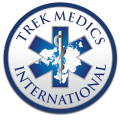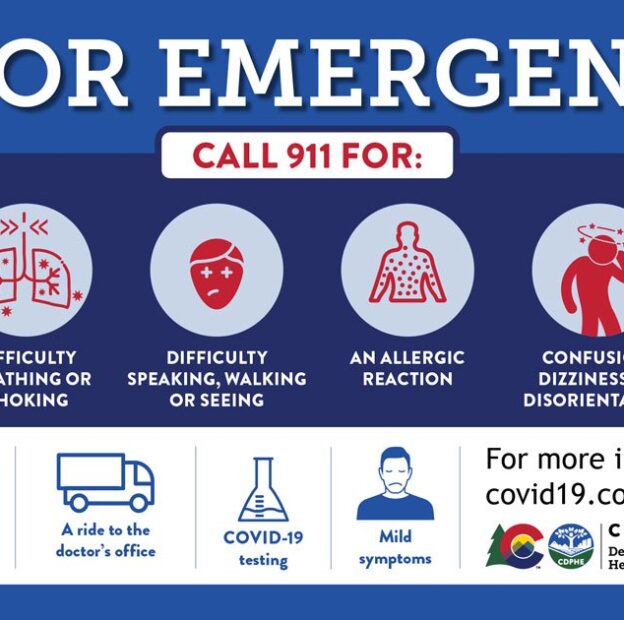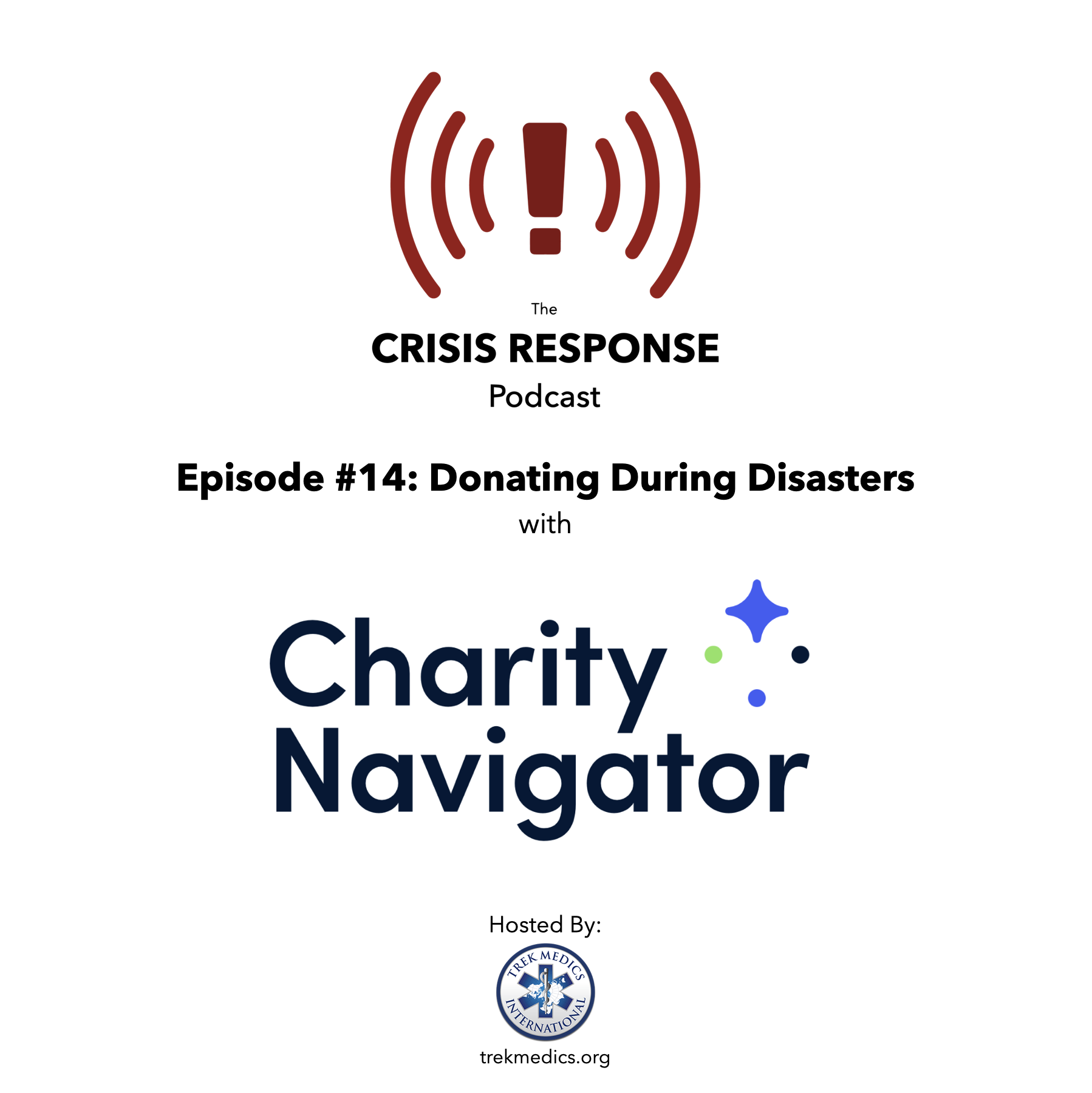Coronavirus is a global pandemic. People are scared, and with good reason: We’re told the virus is everywhere but nobody can see it, and people who have caught it may not show symptoms of the illness for up to two weeks after getting it.
People who are feeling sick don’t know if they’ve contracted the virus, or how to get tested, so they may be asking themselves:
Should I call an ambulance if I think I have coronavirus?
No, not unless it’s a critical emergency.
Don’t know what qualifies as a “Critical Emergency”?
Click here to take a self-assessment test using a Symptoms Checker created by the U.S. Center for Disease Control and Prevention (CDC)
Why not?
Ambulances are for critical medical emergencies, so they should only be called if someone has an imminent, life-threatening emergency. Coronavirus first appears as mild, flu-like symptoms: a dry throat, fever, cough, and runny nose. If your symptoms are mild, you should call your doctor, hospital or health department to ask them how to find help.
What if my symptoms are more severe?
The CDC recommends:
“If you develop emergency warning signs for COVID-19 get medical attention immediately. Emergency warning signs include*:
- Trouble breathing
- Gasping for air or cannot talk without catching your breath
- Persistent pain or pressure in the chest
- New confusion or inability to arouse
- Bluish lips or face
- Severe or constant dizziness or lightheadedness
- Slurred speech (new or worsening)
- New seizure or seizures that won’t stop
*This list is not all inclusive. Please consult your medical provider for any other symptoms that are severe or concerning.”
According to the CDC, all of these symptoms are potential medical emergencies and their message is:
Call 911 now. Immediate medical attention is needed.
Tell the 911 operator if you have been in contact with someone with COVID-19 or if you have recently been to an area where COVID-19 is spreading.
These are all legitimate reasons to call an ambulance.
Click here to check out the CDC’s Symptoms Checker.
What’s the risk of calling an ambulance if my symptoms are mild? Aren’t ambulances to take sick people to the hospital?
There are two big risks to call for an ambulance if you think you have coronavirus, but your symptoms are only mild:
Risk 1: You’re not infected, but someone who has been in the ambulance was infected
If you think you’ve been infected, it’s likely you’ll want to get tested. If you call an ambulance, it’s very possible that someone else you come into contact with will be infected and pass it on to you — whether it happens in the ambulance or at the hospital, COVID-19 is very contagious, so you’ve now increased your exposure risk significantly and unnecessarily.
Risk 2: You are infected, and now you’re passing the virus on to everyone and everything you come into contact with
If you are infected and you get into the back of an ambulance to go to the hospital, you’re increasing everyone’s exposure risk unnecessarily. Long after you get out of the ambulance, it’s likely the virus continues to live on, infecting scores of other people that genuinely needed the ambulance and weren’t previously infected.
If you think you’re infected and have already called the ambulance, the CDC instructs you to “notify the operator that you have or think you might have, COVID-19. If possible, put on a facemask before medical help arrives.”
Shouldn’t the ambulances be sterilized?
Coronavirus is a global pandemic. People are scared, and with good reason: We’re told the virus is everywhere but nobody can see it, and people who have caught it may not show symptoms of the illness for up to two weeks after getting it.
People who are feeling sick don’t know if they’ve contracted the virus, or how to get tested, so they may be asking themselves:
Should I call an ambulance if I think I have coronavirus?
No, not unless it’s a critical emergency.
Don’t know what qualifies as a “Critical Emergency”?
Click here to take a self-assessment test using a Symptoms Checker created by the U.S. Center for Disease Control and Prevention (CDC)
Why not?
Ambulances are for critical medical emergencies, so they should only be called if someone has an imminent, life-threatening emergency. Coronavirus first appears as mild, flu-like symptoms: a dry throat, fever, cough, and runny nose. If your symptoms are mild, you should call your doctor, hospital or health department to ask them how to find help.
Click here to read what the CDC recommends for people who become sick with mild, flu-like symptoms.
What if my symptoms are more severe?
The CDC recommends:
“If you develop emergency warning signs for COVID-19 get medical attention immediately. Emergency warning signs include*:
- Trouble breathing
- Gasping for air or cannot talk without catching your breath
- Persistent pain or pressure in the chest
- New confusion or inability to arouse
- Bluish lips or face
- Severe or constant dizziness or lightheadedness
- Slurred speech (new or worsening)
- New seizure or seizures that won’t stop
*This list is not all inclusive. Please consult your medical provider for any other symptoms that are severe or concerning.”
According to the CDC, all of these symptoms are potential medical emergencies and their message is:
Call 911 now. Immediate medical attention is needed.
Tell the 911 operator if you have been in contact with someone with COVID-19 or if you have recently been to an area where COVID-19 is spreading.
These are all legitimate reasons to call an ambulance.
Click here to check out the CDC’s Symptoms Checker.
What’s the risk of calling an ambulance if my symptoms are mild? Aren’t ambulances to take sick people to the hospital?
There are two big risks to call for an ambulance if you think you have coronavirus, but your symptoms are only mild:
Risk 1: You’re not infected, but someone who has been in the ambulance was infected
If you think you’ve been infected, it’s likely you’ll want to get tested. If you call an ambulance, it’s very possible that someone else you come into contact with will be infected and pass it on to you — whether it happens in the ambulance or at the hospital, COVID-19 is very contagious, so you’ve now increased your exposure risk significantly and unnecessarily.
Risk 2: You are infected, and now you’re passing the virus on to everyone and everything you come into contact with
If you are infected and you get into the back of an ambulance to go to the hospital, you’re increasing everyone’s exposure risk unnecessarily. Long after you get out of the ambulance, it’s likely the virus continues to live on, infecting scores of other people that genuinely needed the ambulance and weren’t previously infected.
If you think you’re infected and have already called the ambulance, the CDC instructs you to “notify the operator that you have or think you might have, COVID-19. If possible, put on a facemask before medical help arrives.”
Shouldn’t the ambulances be sterilized?
Yes, ambulances should be sterilized, but that doesn’t mean they are.
Even in normal times, ambulances (and hospitals) are very difficult to keep sterile; there are lots of shelves and compartments and mechanical devices carried on ambulances that can be easy to contaminate and hard to sterilize – and sick patients are always getting inside them, making it necessary to be constantly sterilizing them.
But things are different now, and sterilization supplies are becoming a lot harder to come by, so it’s a safe bet to assume that ambulances have a higher chance of carrying viruses than before.
This isn’t very reassuring to hear.
We agree. If the trajectory of the coronavirus continues as it is, it’s very possible that ambulance systems will collapse, either because they are overwhelmed with calls and can’t keep up or because all of the ambulance crews are sick and unable to work.
A good way to avert this second catastrophe is not to contribute to it — if you have mild, flu-like symptoms that you think might be coronavirus, you should call your doctor/hospital/health department and find out from them when you should consider calling the ambulance. Of course, if your symptoms become severe, don’t be afraid to call the ambulance.
Click here to check out the CDC’s Symptoms Checker.
Here’s a useful infographic made by the Colorado Department of Public Health that should make it easier to decide if calling 911 is necessary:









